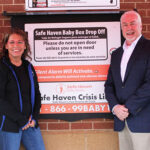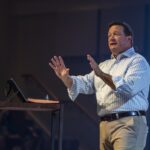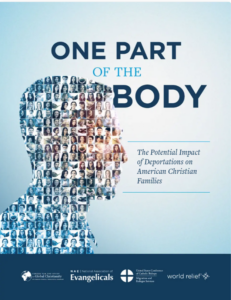
NASHVILLE (BP) – More than 75 percent of adults have a positive view of the church in Nashville, in the center of one of the fastest growing metropolitan areas in the nation. A prevailing positive perception of the church is common in research the Barna Group has unveiled.
In its Barna Cities initiative, researchers have found a favorable view of the church as a common thread among the seven cities that have been studied to date, said Savannah Kimberlin, Barna Group associate vice president for church engagement.
“The church’s reputation right now is not as weak as you might think,” Kimberlin told Baptist Press. “We have seen that consistently across various contexts.
“Many pastors think that non-Christians really have a problem with the church and while that is true for some, most people of no faith and non-Christians specifically have a neutral opinion of the church and a significant proportion have a positive opinion of the church.”
Particularly, Christians and non-Christians alike saw pastors respond to communities in need during the COVID-19 pandemic, which helped individuals see churches as a benefit.
“They see that pastors do genuinely offer help and support to communities and they benefit local communities, that it adds to a community,” she said. “And of course there’s always the exception. There are always the haters in the bunch – the people that have had bad experiences, the people that are against religious institutions altogether. Of course there are those in the data, but it is not as many people as you might think.”
Kimberlin bases her view not only on statistics unveiled in Nashville, where 46 percent of agnostics, nones and atheists – ranked as one group – reported very favorable or somewhat favorable opinions of the church. But she’s also considering Barna Cities findings from Kansas City, Mo.; Columbus, Ohio; Dallas-Fort Worth; Omaha, Neb.; New York City, and the South Florida region.
Nashville is the latest city for which Barna has released data in its Barna Cities study, commissioned for Nashville by Operation Andrew Group and the Charis Foundation. The series launched in November 2021 with concerned nonprofits commissioning studies of the church communities they serve, and will continue in April with the findings from Omaha.
In other findings that have been common among the cities, many would like to see churches address mental health more directly, as well as relational wellbeing.
“We see, even in various contexts and cities, that unchurched people say they would be interested if the church offered preaching and programs to help them with their mental and emotional wellbeing,” Kimberlin said. “Regardless of whether you are in the Northeast or you are in the Bible belt, or you’re in the western part of the country, there’s interest for that topic specifically.”
These issues are particularly important as the nation continues to grapple with the after effects of COVID. People are considering whether their lives would be better if they incorporated the church.
“The lingering effects of the pandemic when it comes to relational satisfaction are pretty stark,” Kimberlin said. “That is fairly consistent and it is manifesting itself differently, depending on whether you’re a city of a lot of young singles, whether you are a city of suburban families primarily, or if you serve rural communities as well. It’s manifesting differently in the data, but it’s always there.”
While certain findings are common among cities studied, Kimberlin sees extreme value in pastors and churches learning the landscape and opinions of the communities they serve.
“We at Barna strongly believe that the best Christian leaders are data-informed leaders,” she said. “Oftentimes pastors and parachurch organization leaders will lead based on gut instinct and past experiences. And while that can be valuable, because we learn as we go, oftentimes our perspectives are informed by our own biases and our own past experiences, for better or for worse.
“We believe at Barna that in order to see clearly as a leader, to really understand your context and what is needed within that context,” she said, “you need to be data-informed as you’re making decisions.”
Operation Andrew and the Charis Foundation have made the Nashville data freely available to the public here, but findings from other Barna Cities research are available through a Barna Access subscription..
–30–























